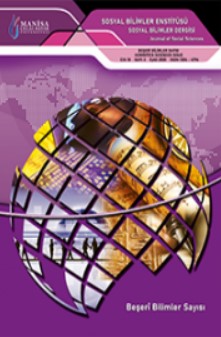Budist Çevreye Ait Eski Uygur Türkçesi Dönemi Metinlerinde “Kadın”
“Woman” In Old Uighur Turkish Texts of Buddhist Environment
Author(s): Muammer ŞEHİTOĞLUSubject(s): Cultural history, Semiotics / Semiology, Historical Linguistics, 6th to 12th Centuries, Turkic languages
Published by: Celal Bayar Üniversitesi Sosyal Bilimler Enstitüsü
Keywords: Woman; Old Uighur Turkish concept sign; Buddhism;
Summary/Abstract: In the historical process, Turkish has transferred many concepts, terms and concept signs to the next generation through written texts, and these concepts, terms and concept signs have continued to be dependent on the changing cultural geography and time in the development and change process of language. The Old Uighur Turkish Period is one of the important historical periods in which Turkish shows such change and development. In particular, a significant number of texts of Buddhist environment were translated into Old Uighur Turkish by adapting them from Toharic and Sanskrit revealing a rich concept, term and sign. The concepts marked for women are also interesting in this respect. In this study, explanations about this kind of concept signs will be made in the texts of Buddhist environment and comparisons will be made about the uses both in the previous and next historical periods. It will also be explained with examples in which texts and what kind of concept signs, words and terms are used. It will also focus on whether the marked concepts, words and terms are titles or adjectives
Journal: Celal Bayar Üniversitesi Sosyal Bilimler Dergisi
- Issue Year: 18/2020
- Issue No: 03
- Page Range: 228-240
- Page Count: 13
- Language: Turkish

